Britain must “up its game” when it comes to trading with India, the co-founder and chair of Cobra Beer, Lord Karan Bilimoria has told Eastern Eye.
The peer has written to Rishi Sunak, urging him to lead the first cross-party UK prime ministerial delegation to Delhi, Mumbai and other major cities and states since 2016, to woo the country’s business leaders, government officials and ministers.
It comes as media reports suggest that the India-UK trade deal will not be signed before the end of Prime Minister Narendra Modi’s second term.
The UK launched its free trade agreement [FTA] with India in January 2022, and senior representatives from both countries have met nine times without securing a deal.
“India is the fastest growing major economy in the world,” said Bilimoria. “I've been to India, three or four times this year already.
“Literally every visit you can see that the country is on the move.
“It is buzzing, the huge infrastructure developments, the growth, it's the fastest growing major economy in the world.
“We need to be in India in a big way, we need to be investing in India in a big way.
“The reality is, India is only the twelfth largest trading partner of the UK.
“How can an economy that is now the fifth largest economy in the world be only the twelfth largest trading partner?
“That's not good enough, and soon Indian will be the third largest economy in the world, at least within 25 years.”
Stuck record
Last week (18) the Reuters news agency reported that India and Britain were “struggling to make progress in free trade talks due to differences on some key tariff lines and investment protection rules”.
It quoted an unnamed government official telling it that the “two nations are unable to agree on concessions on duties levied by India on car and liquor imports”.
Another source told the agency that the UK was “pushing India to agree on strong investment-protection provisions either as part of the deal or in a parallel investment treaty”.
Bilimoria’s intervention came after he co-led a cross-party delegation to India for a five-day visit of Delhi, Ahmedabad, Pune and Mumbai.
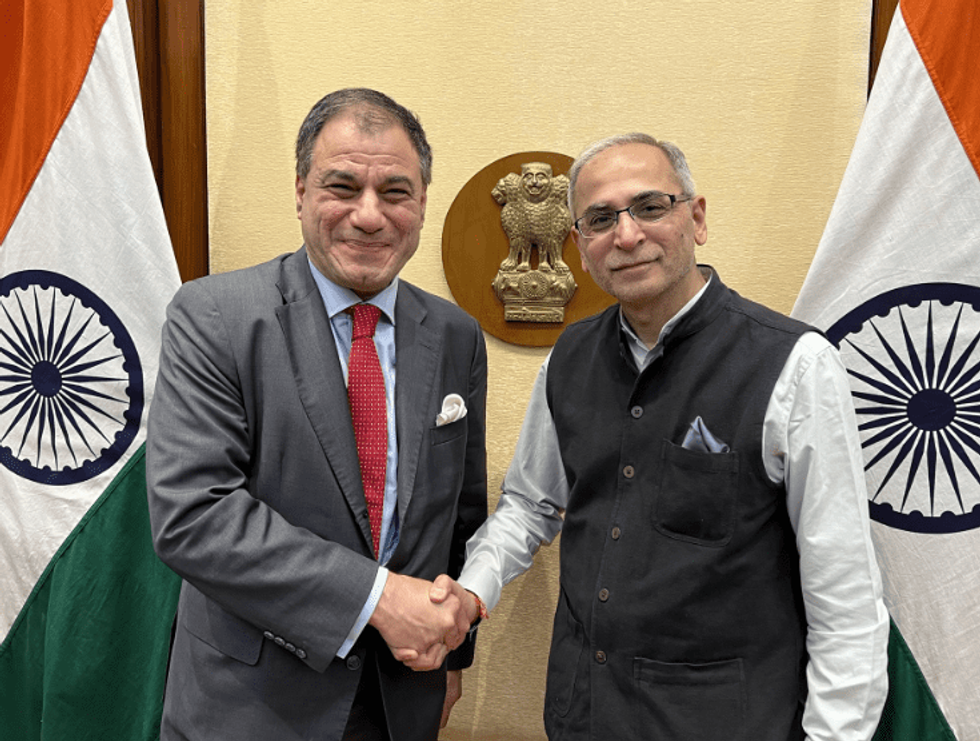
“There were rumours that the free trade agreement was stalled, and they were completely denied by the Indian ministers,” the peer told Eastern Eye.
“It's not the case at all, it's very much on course, and there's a real commitment to make a substantial and comprehensive free trade agreement to the benefit of both UK and India.
“But I just think we need things like a prime minister’s delegation.
“I told Boris [Johnson, the former UK prime minister] last year, please take a delegation, and he didn't.”
The nine-strong delegation, which included MPs and peers, met the “who’s-who” of Indian industry, said Bilimoria.
“I'm like a stuck record saying that we've got to update engagement, for example, we don't have a trade envoy for India.
“Now how can we have trade envoys for so many countries on so many continents, and none for one of the most important partners of the UK going forward.
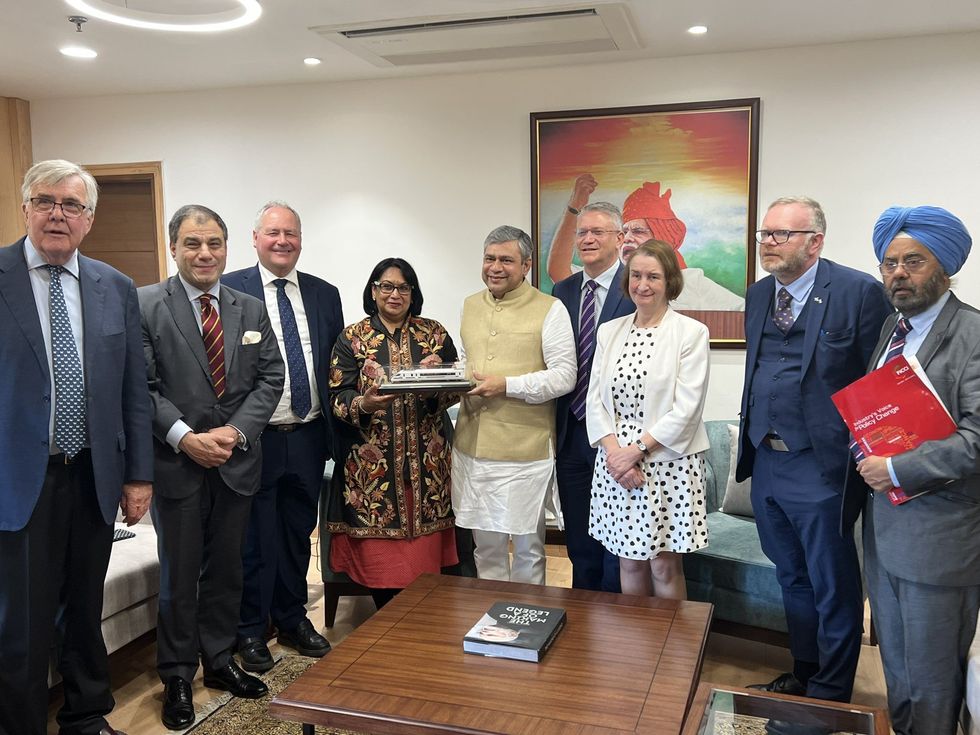
“Whether it's in trade investment, whether it's from a security point of view, as a strong ally, we should have probably not one but more than one trade envoy for India.
“It's such a big market and country to cover, so I cannot understand why.
“Let's use this free trade agreement now to completely take to another level our engagement with India.”
Delegate deals
Sources have told Eastern Eye that prime ministerial delegations or missions show intent on bilateral trade, and such a visit would pave the way for speedier negotiations between India and the UK.
Bilimoria’s delegation went to India days before the ninth round of trade talks, which took place between the 24 and 28 April.
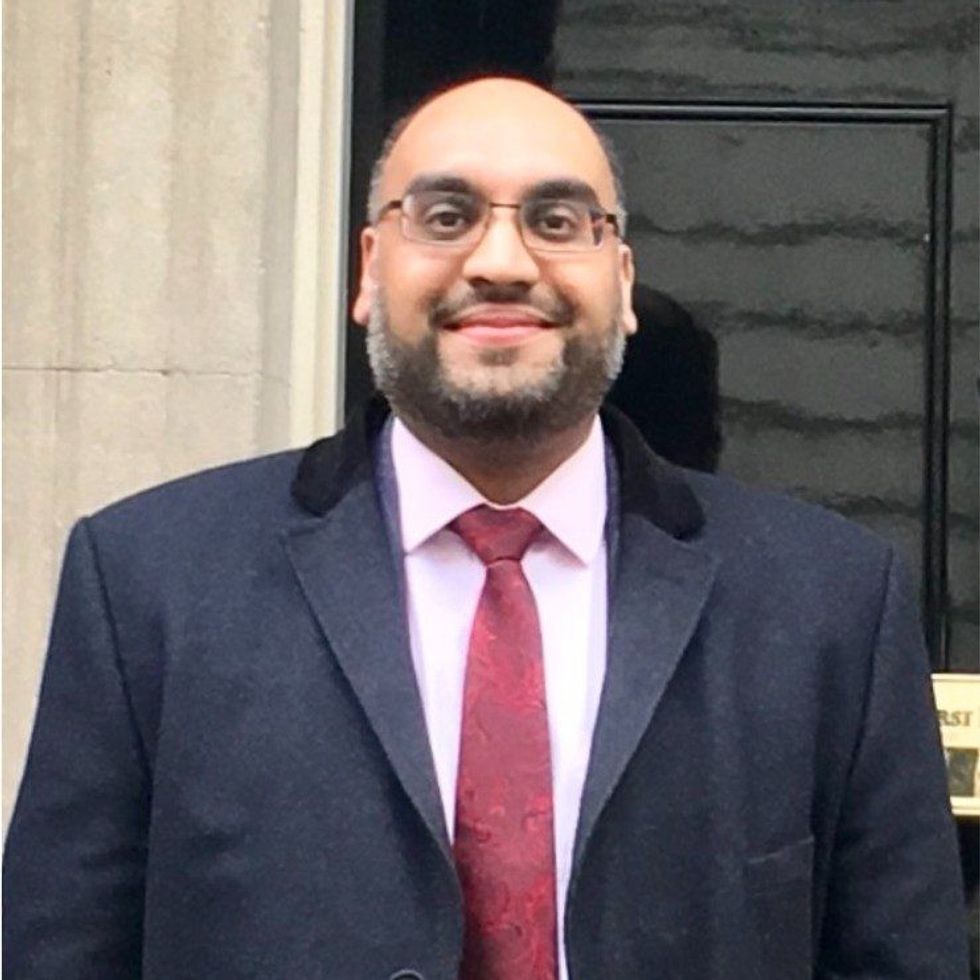
The boss of consultancy firm India Business Group, Amarjit Singh, went with former British PM, David Cameron, a decade ago [2013] on what he described as the “largest ever mission led by a British prime minister to any country”.
Singh told Eastern Eye that far from being a junket, the trade mission meant 18-hour days, where back-to-back meetings and evenings networking resulted in deals for the UK and India.
“How it works is, deals that government departments are working on in the background, which obviously take time, they're often announced during a high-profile mission of this nature, because it gets a wider coverage in media.
“But also, it sends a very strong signal to British industry, that these are markets of priority and focus for the government, where the government are trying to enhance or improve the ease of doing business.
“The mission sends a simple message, the UK should be your destination of choice for fresh investment, for technology transfer, for collaboration on kind of research and development and all the kinds of strengths or specialisms that the UK can offer.”
Unrealistic deadlines
Both governments have scheduled more negotiations in the coming months.
Commentators believe the FTA is crucial for Modi as he runs for a rare third term as prime minister.
They think that a deal would solidify India's business-friendly image.
But sources told Reuters that, “Britain, on the other hand, has prioritised a deal with India as part of its Indo-Pacific foreign policy tilt aimed at enhancing ties with the region's fast-growing economies.
“The main disagreement on the investment protection provisions is Britain's insistence that its companies be allowed to seek international arbitration should a dispute arise without going to Indian courts first.”
Last month [April 19], the House of Commons International Trade Committee published its update on the talks.
The report confirmed that Boris Johnson expected a deal to be done by last October to coincide with Diwali.
But once he was ousted, the committee said that international trade secretary, Kemi Badenoch, “had not agreed with the previous prime minister, Liz Truss, about how to approach the negotiations with India.”
She updated MPs about the current prime minister’s [Sunak] position.
“I have spoken to him about deadlines, and he agrees with me on that: he says it is about the quality, not the speed, of the deal,” she said.
The MPs criticised the Diwali deadline as “unrealistic”.
They continued, “In all its trade agreement negotiations, the government must take the necessary time to get an agreement that works for the UK, maintaining strong ‘red lines’ on non-negotiable defensive interests and adhering to a minimum core of offensive interests that must be fulfilled.”
Competitive race
But the Cobra Beer chair is eager for real action.
“We're in a race, everyone wants to do business with India, and other countries are showing more of a commitment to doing this,” said Bilimoria.
“I was very upset when I heard one of the very senior people we interacted with saying, ‘France is doing more than you are, we're doing more with France than we are with the UK.’
“Now, that should not be the case.
“We're competing with France, we're competing with Germany, we're competing with South Korea, we're competing with Japan, we're competing with the United States of America.
“I'm naming the countries very specifically, we compete with Italy, and we should, with our long-standing close relationship with India, be the number one, and we should be right ahead of everyone.
“I met a senior minister in Hyderabad, on the visit before the delegation, and he said, ‘Microsoft, Google, Amazon, they're all here. They've all invested huge amounts. We want Britain here as well.’”
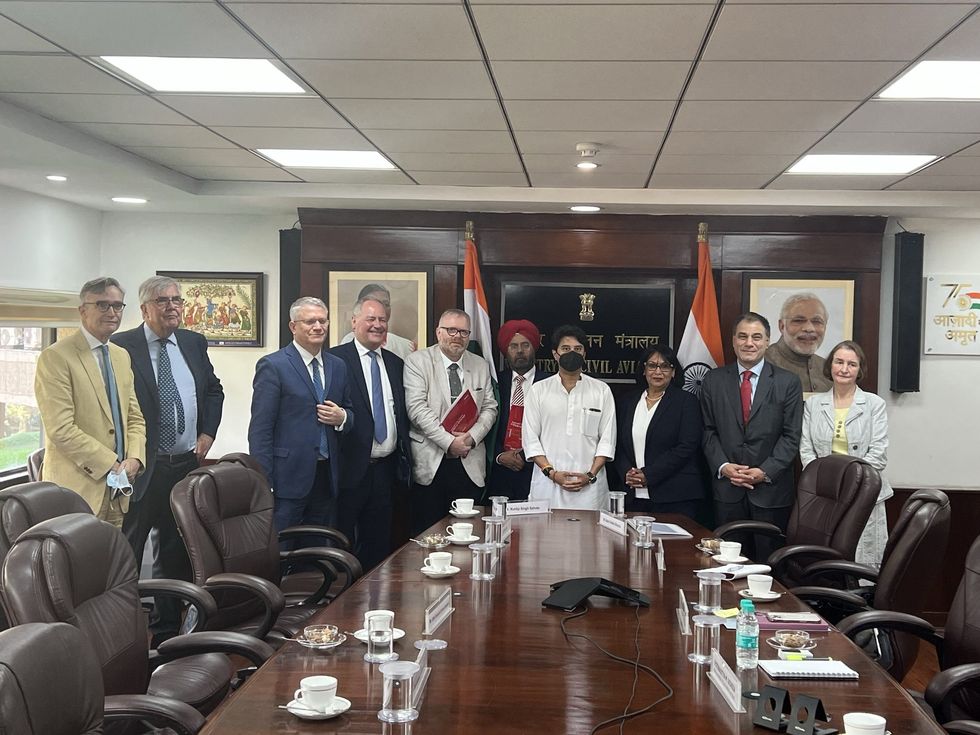
It is unclear when or if a free trade agreement deal will be signed.
Sources told Reuters that both countries have ruled out the possibility of “an interim pact”.
"We had kept November as another soft deadline,” said one anonymous source.
“But does not look like this is going to work out till at least next year.
“Maybe after the general elections in India."
One source told Eastern Eye that the problem with that is that Sunak is trailing the polls to his Labour rival, Sir Keir Starmer.
If the Tories were to lose, the deal may have to start all over again, and “Britain will be pushed to the back of a very long queue”, they said.
“We will lose out if we don't engage with India, and it's not too late,” said Bilimoria.
“The good news is a trade between the UK in the last few years has gone up from £24 billion to over 30 billion.
“That's a very good sign, and we just need that increases in bilateral trade and goods and services as well as in investment.”
G20 summit
Eastern Eye asked a series of questions regarding Lord Bilimoria’s observations.
Both the trade department and Downing Street refused to comment.
A spokesperson for the trade department told Reuters that both countries were "committed to working towards the best deal possible for both sides."
"We are clear that we will only sign when we have a deal that is fair, balanced, and ultimately in the best interests of the British people and the economy," they said.
According to the UK’s statement, “They discussed progress on a UK-India free trade agreement.
“The leaders agreed that their teams would continue to work at pace to finalise an ambitious and mutually beneficial deal.”
Sources have told Eastern Eye that they expect Sunak and Modi to meet to discuss the FTA on the margins of the G20 summit, [20 richest nations], which India is hosting in Delhi in September.
IBG’s CEO, Amarjit Singh, who advises both UK and India governments, told Eastern Eye that it would take time for both sides to agree a deal.
“The intention is to create an ambitious, comprehensive and mutually beneficial agreement.
“It will take time because there are so many different aspects you've got to consider, particularly for India.
“For example, tariffs on such a broad range of areas, it takes time for them to link up and get buy in from all the stakeholders from different industries.
“It's a strategic development of high-level discussions, which are taking place at pace.
“The objective is to reach an agreement, which will be effective, but one which is desirable, to the widest possible range of businesses.
“Whether you're selling goods, services, technology transfer, whether you're in academia, there'll be something in it for everyone.”




















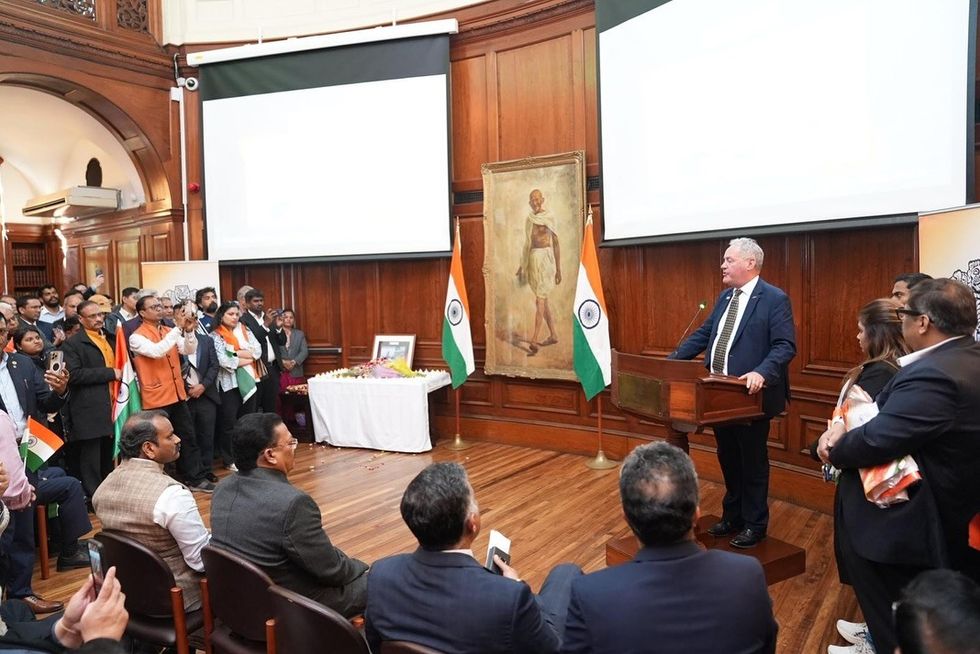 Bob Blackman MP speaks during the event
Bob Blackman MP speaks during the event